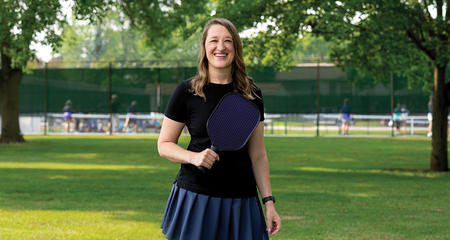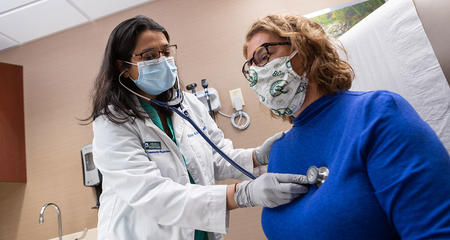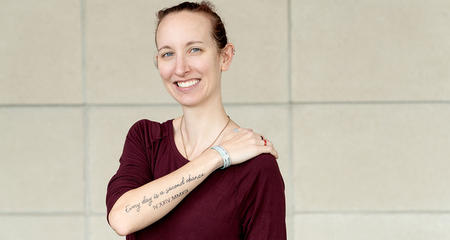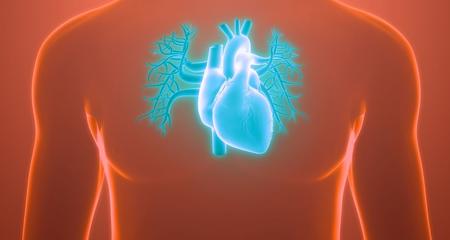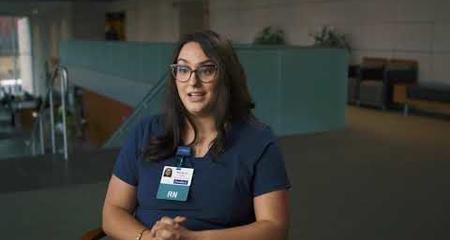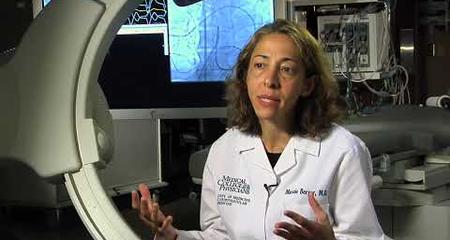Hybrid atrial fibrillation (AFib) ablation is a treatment for patients with persistent and long-standing persistent AFib. This is defined as AFib that has been present for greater than seven days in a row or for greater than 12 months in duration.
What Is Hybrid Ablation for AFib
The hybrid approach includes two types of ablations.
- Endocardial catheter ablation which is done by an electrophysiologist.
- Epicardial ablation which is done surgically using a robotic approach.
Together, these two ablations lead to greater success (70 – 80%) in treating persistent and long-standing AFib than an endocardial ablation alone.
In addition to the AFib ablations, at the time of the surgical ablation, a closure device known as an AtriClip® is placed on the outside of the left atrial appendage (LAA). This appendage is where 90% of blood clots form in AFib. By closing off this appendage, we prevent blood from flowing into the appendage. This, in turn, prevents blood clots from forming therefore preventing stroke. This is the primary reason patients in AFib need to take a blood thinner.
What to Expect During Hybrid Ablation
First, you will be seen by the electrophysiology team to determine if hybrid ablation is the best approach for you. If you are a good candidate for the hybrid ablation procedure, you will see the cardiothoracic surgery team. These two specialized departments work together as one team to provide you with the most comprehensive and coordinated care.
How Long Does Hybrid Ablation Take
Hybrid ablation is a two-step ablation process. It can take several months to complete both the surgical and endocardial catheter ablations.
Robotic surgical ablation takes three hours in the operating room with usually a one-night hospital stay. After the surgery, we schedule your endocardial catheter ablation about eight to 12 weeks later. The endocardial catheter ablation is done as an outpatient/same-day procedure, though you may need to stay overnight in the hospital.
Hybrid Ablation Recovery
Most patients go home the day after the surgical epicardial ablation and are back to light daily activities in a few days. There is some surgical discomfort which will gradually resolve over about four weeks.
You will follow-up with the cardiothoracic surgery team two weeks after surgery and follow-up with the electrophysiologist four weeks after surgery. We will follow you for several years after the procedure to check your heart rhythm to make sure it remains normal. You may need to wear a Holter monitor for a week. If you already have an implanted device — such as a pacemaker, we can pull the information from it.
Benefits of Hybrid Ablation
Recent research shows that the hybrid ablation approach to treating AFib works best to get rid of or significantly reduce your AFib when compared to endocardial ablations and medications alone. By doing the surgical portion of the ablation robotically, we can — in some cases — offer this beneficial operation to patients with previous chest surgeries and who would otherwise be considered inoperable.
Patients are often able to be completely off their AFib medications or at least reduce them significantly. In some cases, patients can also stop blood thinners — which can cause problems with bleeding after a fall, an accident or another condition.
Advantages of Hybrid Ablation at the Froedtert & MCW Heart and Vascular Center
We are leading the field in AFib hybrid ablations by using a specific technique created by our own Mario Gasparri, MD, Froedtert & MCW cardiothoracic surgeon. This procedure is usually performed by making an incision below the breastbone and along the side of the left chest. At the Froedtert & MCW Heart and Vascular Center, however, we utilize a robotic approach to perform the procedure through the left chest with four small incisions.
This approach allows us to take advantage of the improved visualization the robot provides, as well as the ability to use the robotic arms to perform very precise placement of ablation lines on the heart. We are also able to do the surgery in some patients who have had previous cardiac surgery who, traditionally, would not be a candidate for the procedure.
Virtual Visits Are Available
Safe and convenient virtual visits by video let you get the care you need via a mobile device, tablet or computer wherever you are. We'll assess your condition and develop a treatment plan right away. To schedule a virtual visit, call 414-777-7700.
More to Explore
